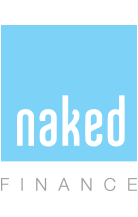Top Ten Secrets Your Mortgage Lender Won’t Tell You

It’s no secret that getting a mortgage is a complicated process. There are dozens of forms to fill out, documents to provide, and hoops to jump through. And that’s just the beginning – once your lender has all of that information, they still have to evaluate it and decide whether or not to approve your loan. In the midst of all this confusion, it can be tempting to just trust your lender and hope for the best. But what if they’re not telling you everything? What if there are some secrets your mortgage lender doesn’t want you to know?
In this blog post, we’ll reveal ten secrets your mortgage lender doesn’t want you to know. We’ll explain what each one means for you and how you can protect yourself during the mortgage application process. So read on – knowledge is power!
1. Your credit score may not be as high as you think
Your credit score is one of the most important factors in getting approved for a mortgage. Lenders will use your credit score to determine whether or not you’re a responsible borrower and if you’re likely to default on your loan. If your credit score is low, it will be difficult to get approved for a mortgage – no matter how strong your other qualifications may be.
Unfortunately, many people don’t realise that their credit score may not be as high as they think. In fact, according to a recent study by the Consumer Financial Protection Bureau, one in four consumers had an error on their credit report. So before you apply for a mortgage, check your credit report and make sure everything is accurate. If you find an error, dispute it with the credit bureau right away.
2. You may not need as much money for a down payment as you think
When most people think about getting a mortgage, they focus on saving up for a huge down payment. But the truth is, you may not need as much money as you think. In fact, depending on the type of loan you get, you may be able to put down as little as 3% of the purchase price of your home.
If you’re a first-time homebuyer or if you have a low income, there are even programs that can help you with your down payment. So don’t despair if you don’t have a ton of savings – there are still options available to you.
3. Your mortgage rate may be higher than advertised
When you’re shopping around for a mortgage, lenders will advertise low-interest rates to attract your business. But the truth is, you may not actually get that rate.
Interest rates for mortgages are determined by many factors, including your credit score, employment history, and the type of loan you’re getting. So even if a lender advertises a low-interest rate, you may not qualify for it. Be sure to ask about the interest rates you qualify for before you commit to a loan.
4. Private mortgage insurance may be required
If you’re putting down less than 20% of the purchase price of your home, you may be required to purchase private mortgage insurance (PMI). PMI is insurance that protects the lender if you default on your loan. It’s an extra expense that will be added to your monthly mortgage payment.
5. Your interest rate may adjust after you close on your loan
If you have an adjustable-rate mortgage (ARM), your interest rate may change after you close on your loan. ARMs usually have a fixed interest rate for a certain period of time – typically 5, 7, or 10 years – and then the rate adjusts annually based on market conditions.
This means that even if you lock in a low-interest rate when you first get your loan, it could eventually go up. So if you have an ARM, be sure to ask about how often and by how much your interest rate can adjust. That way, you’ll know what to expect down the road.
6. You may have to pay for points to get a lower interest rate
When you’re taking out a mortgage, you may be offered the option of paying “points” in exchange for a lower interest rate. One point is equal to 1% of the loan amount, so if you’re taking out a $200,000 loan, one point would cost $2,000.
Paying points may make sense if you plan on staying in your home for a long time. But if you think there’s a chance you may sell or refinance soon, it may not be worth it to pay the points upfront.
7. You could be charged a higher interest rate if you’re self-employed
If you’re self-employed, you may be charged a higher interest rate on your mortgage. That’s because lenders view self-employed borrowers as being riskier than those who have a regular paycheck.
8. Your mortgage payments could go up (even if your interest rate doesn’t)
If you have an adjustable-rate mortgage (ARM), your interest rate may change after you close on your loan. ARMs usually have a fixed interest rate for a certain period of time – typically 5, 7, or 10 years – and then the rate adjusts annually based on market conditions.
This means that even if you lock in a low-interest rate when you first get your loan, it could eventually go up. So if you have an ARM, be sure to ask about how often and by how much your interest rate can adjust. That way, you’ll know what to expect down the road.
9. You may have to pay for appraisals and inspections
When you’re buying a home, you’ll likely have to pay for an appraisal (which determines the value of the property) and a home inspection (to make sure the home is in good condition). These costs are usually passed on to the buyer.
10. Your closing costs may be higher than you expect
When you’re buying a home, you’ll have to pay for a variety of fees and services at closing. These include things like title insurance, loan origination fees, and appraisal and inspection fees. Be sure to ask your lender for an estimate of these costs so there are no surprises.
Be sure to ask your mortgage lender about these ten important things before you commit to a loan. By knowing what to expect, you can be sure that you’re getting the best deal possible on your mortgage.
